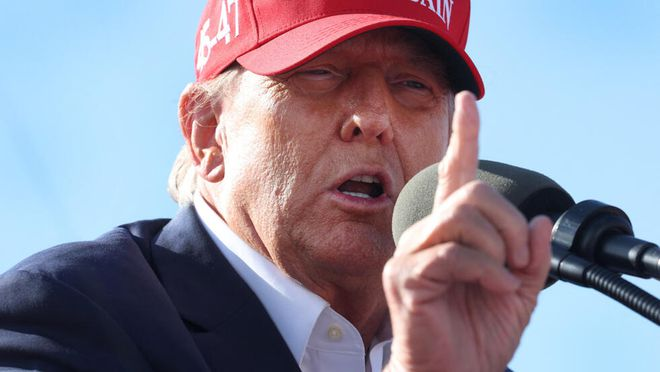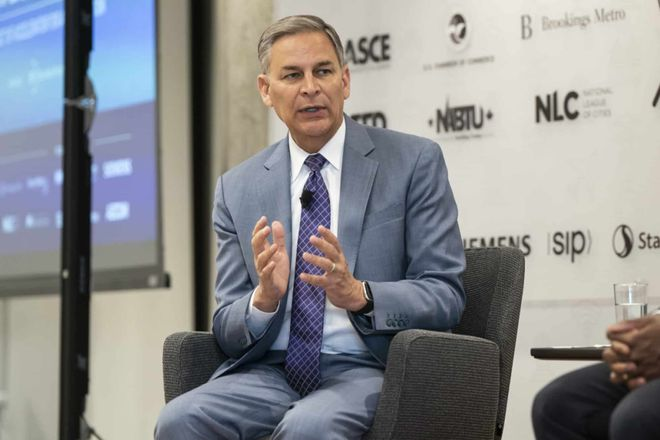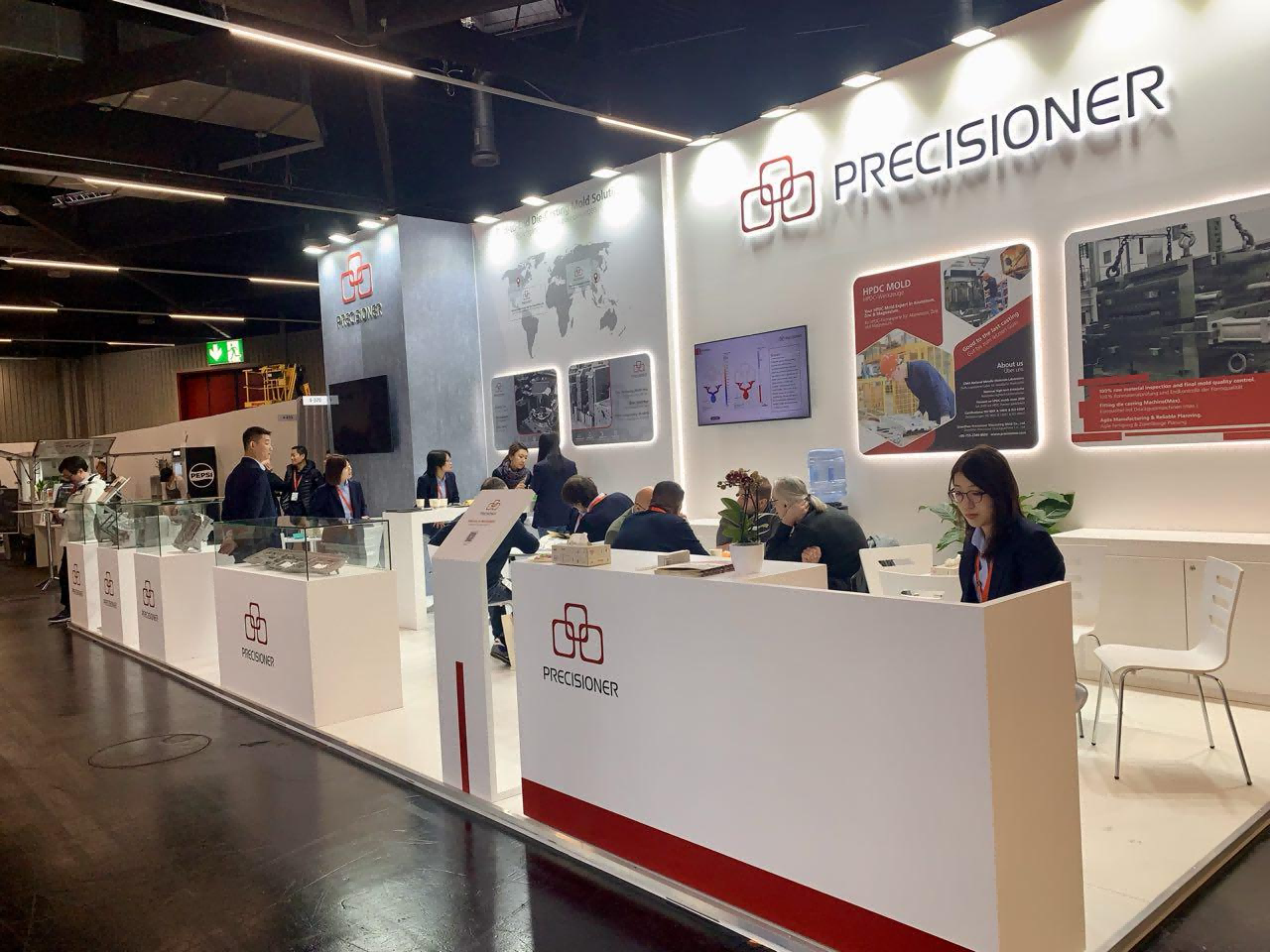- He wants tariffs on cars made by Chinese firms in Mexico
- GOP nominee says retaliatory tariffs don’t concern him

In a surprising turn of events, former President Donald Trump has issued a bold threat to impose 100% tariffs on Chinese cars manufactured in Mexico. This move has sparked widespread debate and concern within the automotive industry and international trade circles.
The escalating trade tensions between the United States and China have taken a new twist with Trump's latest announcement. The proposal to target Chinese cars produced in Mexico has raised eyebrows and fueled speculations about the potential repercussions on global trade dynamics.
Trump, known for his hardline approach on trade issues during his presidency, justified the proposed tariffs as a measure to protect American jobs and industries. He reiterated his long-standing criticism of China's trade practices and expressed his determination to address what he perceives as unfair trade advantages enjoyed by Chinese automakers.
The automotive industry has responded with a mix of concern and skepticism to Trump's tariff threat. Industry analysts warn that such a move could disrupt supply chains, increase production costs, and ultimately impact consumers through higher prices for Chinese-made vehicles.
The prospect of 100% tariffs on Chinese cars made in Mexico has raised questions about the broader implications for international trade. Experts warn that retaliatory measures from China and Mexico could escalate the trade dispute, leading to a spiral of protectionist policies and economic uncertainties.
Currently, electric vehicles (EVs) manufactured in China face a 27.5% tariff upon import into the United States, comprising a standard 2.5% tariff on imported vehicles and an additional 25% tariff imposed by the Trump administration specifically on Chinese-made automobiles since 2018. In contrast, vehicles produced within factories in Mexico typically incur a lower tariff of just 2.5% when entering the US market. If these vehicles meet the stringent local content requirements specified under the United States-Mexico-Canada Agreement (USMCA) that took effect in 2020, they could potentially be exempted from tariffs altogether. The USMCA trade deal, which was ratified in 2018 and entered into force in 2020, stipulates that automotive companies must have 75% of their vehicle components made in either Mexico, the United States, or Canada to qualify for duty-free treatment.
Regarding Trump's threats to escalate tariffs on Chinese electric cars, Jay Timmons, the President and CEO of the National Association of Manufacturers, the largest manufacturing industrial trade association in the US, publicly expressed his clear opposition at an event in Washington. He contended that tariff policies have had counterproductive effects, inflicting harm on American manufacturing. Timmons also cautioned the US government against imposing further tariffs on Chinese products, warning that such actions could severely undermine the global system of free trade. He cautioned that initiating more tariff hikes would inevitably provoke retaliatory measures.

Trump's announcement has reignited debates on trade policy and the role of the United States in shaping global trade norms. Critics argue that unilateral tariff threats could undermine diplomatic efforts and strain relationships with key trading partners.
As the situation unfolds, stakeholders across the automotive and trade sectors are bracing for potential disruptions and uncertainties. The outcome of Trump's tariff threat could have far-reaching implications for the global economy and trade relations between the United States, China, and Mexico.
The looming threat of 100% tariffs on Chinese cars manufactured in Mexico underscores the complex and interconnected nature of international trade relations. The evolving dynamics of global trade underscore the importance of dialogue, cooperation, and diplomacy in addressing trade disputes and fostering sustainable economic growth.















